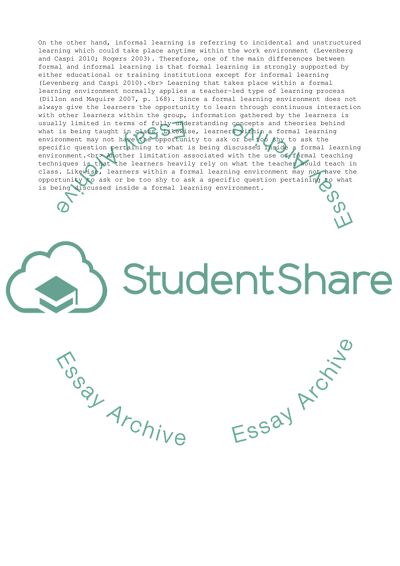Cite this document
(Reasons Why Organisations Should not Rely Entirely on Formal Workplace Research Paper - 1, n.d.)
Reasons Why Organisations Should not Rely Entirely on Formal Workplace Research Paper - 1. Retrieved from https://studentshare.org/management/1748079-workplace-learning-and-human-resource-management
Reasons Why Organisations Should not Rely Entirely on Formal Workplace Research Paper - 1. Retrieved from https://studentshare.org/management/1748079-workplace-learning-and-human-resource-management
(Reasons Why Organisations Should Not Rely Entirely on Formal Workplace Research Paper - 1)
Reasons Why Organisations Should Not Rely Entirely on Formal Workplace Research Paper - 1. https://studentshare.org/management/1748079-workplace-learning-and-human-resource-management.
Reasons Why Organisations Should Not Rely Entirely on Formal Workplace Research Paper - 1. https://studentshare.org/management/1748079-workplace-learning-and-human-resource-management.
“Reasons Why Organisations Should Not Rely Entirely on Formal Workplace Research Paper - 1”, n.d. https://studentshare.org/management/1748079-workplace-learning-and-human-resource-management.


